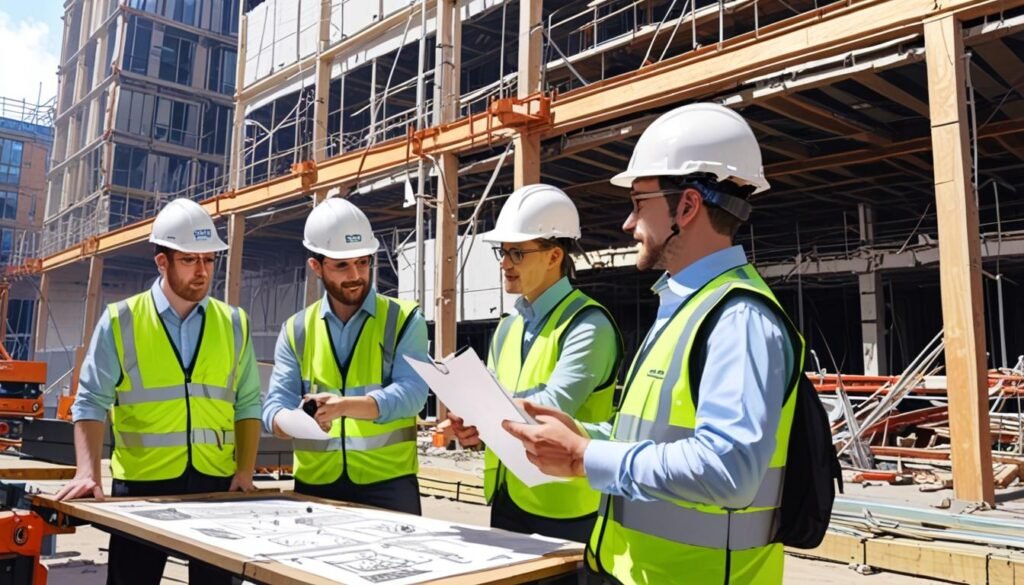**London**: Wates reports record turnover and profit for 2024, marking its 25th consecutive year in the black. CEO Eoghan O’Lionaird emphasises improvements in productivity, technology use, and sustainability in a bid for continuous growth while addressing safety and efficiency in construction processes.
Wates, a prominent UK construction firm, has announced record turnover and a pre-tax profit in its financial results for the 2024 calendar year, marking the 25th consecutive year of profitability for the family-owned company. Eoghan O’Lionaird, Wates’ chief executive, expressed a commitment to continuous improvement, stating that he is focused on implementing lean management techniques throughout the business, speaking to Construction News on 8 April.
O’Lionaird, who took the helm two years ago, continues to pursue his vision for productivity enhancements based on his earlier experiences in Japan. He referred to this initiative as “business optimisation,” a strategy that is integrated across all divisions within Wates. He noted that these enhancements are not quick fixes; rather, they are “longer-wavelength initiatives” aimed at driving productivity and refining processes.
One significant advancement Wates has undertaken is the development of a supply-chain policy team, which has produced a comprehensive operational framework, or “bible,” detailing the processes the firm necessitates at construction sites. O’Lionaird described this framework as a “compendium of dozens and dozens and dozens of processes,” underlining the collaborative efforts with subcontractor partners to streamline operations.
Describing the early stages of this initiative, O’Lionaird remarked, “I wouldn’t say we’re in the foothills but we’re climbing hard at the moment.” He added that the company plans to address all core site functions in the ongoing effort to eliminate inefficiencies that may accumulate in processes over time.
In addition to improving supply chain efficiency, O’Lionaird highlighted the role of technology, artificial intelligence (AI), and data analytics in achieving operational excellence. He stated, “The age of data analytics has well and truly arrived,” and noted that the construction sector is progressively adopting these innovations. Wates has been trialling AI technologies in partnership with Amazon Web Services at a construction site in central London, where AI-enabled wearable devices are being used to monitor worker movements in exclusion zones, contributing to enhanced safety protocols.
Investment specifics in AI and data analytics were not detailed in Wates’ latest accounts; however, chief financial officer Philip Wainwright noted, “We have a central team of 10 people who just focus on how we can apply data to our processes.”
Wates places a strong emphasis on sustainability and decarbonisation, with its Property Services division undertaking £200 million worth of decarbonisation and retrofit projects in the preceding year. The company also acquired Merseyside-based Liberty Group last October, a move described by O’Lionaird as significant, as it reflects the shifting landscape towards electric heating solutions.
He stated, “We think the age of conversion from gas to electric heating, in particular air-source and ground-source [electric] heat pumps, is upon us,” indicating that the firm intends to capitalise on Liberty’s expertise in not just maintaining gas boilers but also facilitating transitions to electric heating sources. Wates anticipates that this strategy will drive future profitable growth.
In alignment with industry trends, Wates remains focused on building safety remediation. The firm reduced its provision for such work from £75.6 million to £53.2 million last year. Wainwright remarked on the company’s ongoing commitment: “We’re looking forward to a period where we continue to provide good service to these [high-risk] buildings, but it’s a reducing tail.”
O’Lionaird reaffirmed Wates’ proactive stance in remediation work, stating, “In some instances, we’ve proactively reached out to our clients where we’ve found the need for us to undertake remediation.” He expressed confidence that the majority of major projects needing remediation have already been identified and addressed, yet the firm remains prepared to tackle any new requirements in the same proactive manner as before.
Source: Noah Wire Services

